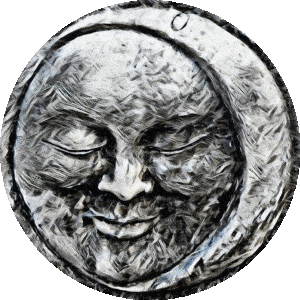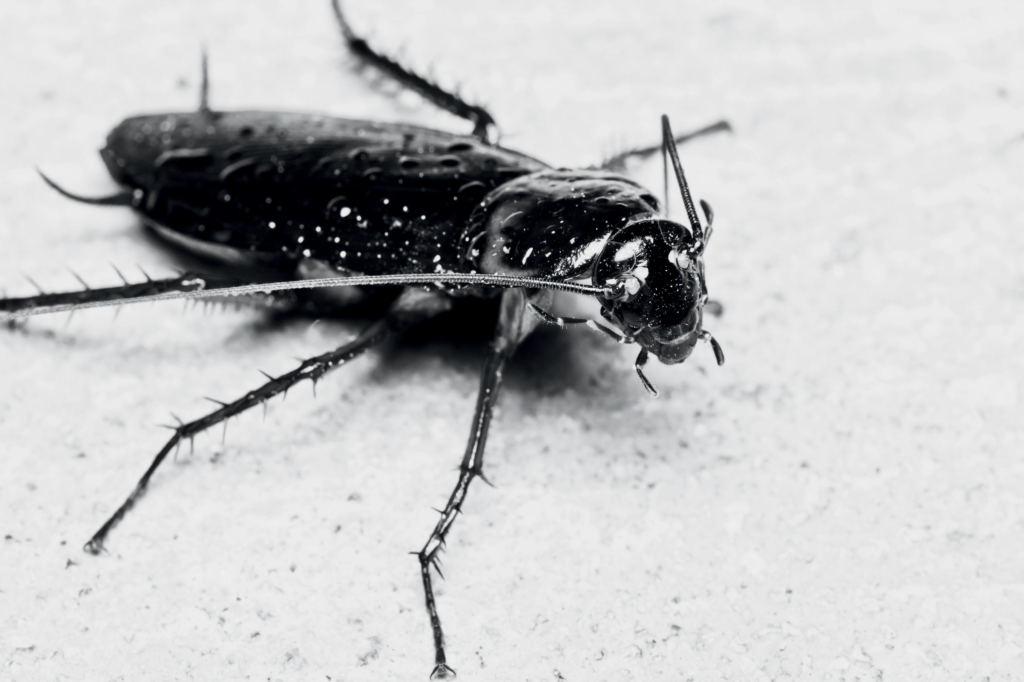Moon Window
– Fiction Story by Charles O’Donnell – July 24, 2018 –
Neal Bickley had thought that a public ass-chewing couldn’t be that bad.

Watching the chairman skewer board meeting presenters, while Neal and his fellow executives smiled behind their hands, was high entertainment. They’d even made a game of it: By tradition, the victim of the most humiliating tirade never paid for drinks at the post-meeting cocktail hour. It was practically a rite of passage. Neal felt left out, never having been a target himself. His reports were always the last item on the board meeting agenda—insurance benefits and rate negotiations barely qualified as an afterthought. By the time they got to Neal, the chairman was usually checking email. Neal questioned whether his work mattered—even an angry broadside would show that the boss cared. That wouldn’t be so bad.
But it was bad.
The corporate board room was as primal a habitat as any rain forest, populated with predators and prey, suitors and mates, parasites and hosts. Those still standing were either victors in the struggle for survival or masters of protective coloration. Neal was of the camouflage school—blend in, keep your head down, let the struggle rage around you. His reward was subsistence, not power. He was a submissive male in a gorilla troop in which the arbiter of success was a single silverback male.
The chairman was old-school, Theory X, whose motto was “kiss up, kick down.” Every board meeting was a dominance display, the chairman hectoring the presenters until they turned belly up or the chairman ran out of rage. Throughout today’s meeting he’d been subdued. Some took it as a good sign. To Neal, it was a bad omen. He’d seen it before—the old man had picked his issue ahead of time and was saving up his ire. The longer the meeting went, the less sanguine Neal was about getting chewed out. When he stood up to present, the chairman closed his laptop and faced forward.
Before Neal had finished his intro the chairman interrupted. Is this report accurate? He waved a sheet over his head. We’re paying premiums forty percent above industry average? Neal knew the answer, and it was a good answer, but the chairman wouldn’t have it—he’d already co-opted Neal’s time slot for his rant. And it was a good rant, judging from the audience—all eyes downcast, all arms crossed, no one smiling behind their hands.
The executives, lined up like dolls on a rack in a carnival game, faded into the distance behind a veil of fog. The chairman stood out in sharp relief, his head swollen to inhuman size, his eyes a luminous red, radiating like molten rock, his mouth a bottomless maw, lined with rows of teeth, wielding rate schedules and actuarial tables like samurai swords. One swipe at a time, the chairman reduced Neal to a bleeding stump.
The customary lunch buffet followed the meeting. Neal made only a token trip through the line, left most of it on the plate and departed early. He drove the route toward home, his head an echo chamber filled with the chairman’s booming invective. A mile from his house he changed course, toward the old part of the city. A walk among the historic architecture, he thought, might clear his mind. Also, he wasn’t looking forward to what waited for him at his house. Once a decompression chamber after a hard workday, the Bickley home was now just another font of grief. Since his performance at work started slipping, his whole outlook had turned dour. And if he ever found a reason to be cheerful, he could count on his wife Sophie to fix that.

Director of Benefits was not a title that Sophie could brag about to her friends, all wives of Vice Presidents and General Managers. The pecking order so ruthlessly established at the firm extended to spouses, enforced even more rigidly at the tennis club than in the workplace—no pretense of equality was observed. A look, a word, a gesture, a pause between a joke and a laugh—these were the language of social status, incomprehensible to outsiders, eloquent among the wives. Sophie knew exactly where she stood, and no one stood below her. If Sophie couldn’t make rank at the club, she’d make it at home.
Nor was Director of Benefits the title that Neal had aspired to as a young Human Resources generalist more than twenty years ago, newly graduated from a state university, recently married, the new guy at the HR department of a national consulting firm. People are our product, he was told in orientation, and we hire only the best. Our success depends on you, the HR professional. With lofty goals, high ideals, and unfailing faith in the potential of people, Neal threw himself into his work.
But the employee handbook had no guidelines for how to route the nephew of the chairman to the front of the hiring queue, nor how to squelch a harassment complaint against the Executive VP of the Tax Management Division. Orientation offered no instructions on the subtle art of stealing credit for a subordinate’s work, or covertly sabotaging a rival. Neal had no native talent for these necessary skills, and no mentor to teach him. For Neal, success required actual work, placing him at a crippling disadvantage. While others advanced, Neal stalled. His director’s title was not a reward for his many contributions, but for the accomplishment of sticking it out for twenty years.
Neal parked his car near the old city, on a tree-lined street where horse-carts once drove in crooked paths. He walked with his hands in his pockets, shoulders hunched, necktie loosened. He passed rectilinear containers of steel and glass, where people in business attire came, worked, and left. The undifferentiated buildings transitioned to unique expressions of architecture, some bold, some frivolous, some self-indulgent, then to simple, authentic, timeless structures of stone, generations old. Neal felt as if he were traveling backwards in time. He walked for a half-hour, admiring the architecture. Yet he still smarted, the hoped-for mind-clearing not coming, until he rounded a curve, stepping out of the shadow and into the sunlight.
Neal squinted, raising his hand to shield his eyes. He didn’t recognize the street. The shops were old, as old as any he’d seen in the city; he thought they might be the oldest he’d ever seen. He stood next to a restaurant, The Rose o’ Sharon, its tables arranged on the brick sidewalk under a canvas awning, vacant in mid-afternoon. He strolled further, past shops selling all manner of things—housewares, books, musical instruments, luggage—until he came to a windowless storefront, with walls of charcoal-gray granite, and a heavy, black, arch-topped door below a sign painted in silver.
The Luna Club—a name, and nothing else. The shops all had windows displaying their goods; the restaurant had posted a menu. The Luna Club had nothing but a name. Neal looked up and down the street. He was alone. He tried the handle and pushed the door open.
It was a tavern, a popular one, judging from the crowd. The bar to the left was lined with customers, served by two bartenders stepping smartly before a sparkling array of glassware and bottles, pouring and mixing and serving with flair. Every table was occupied, a dozen random celebrations happening at once. It was noisy, but not a crowd noise, like amorphous jabber at a cocktail party. Laughter and song blended like a chorus, not random; more like a composition—a human sound that hummed around him and got inside of him.
He took a step inside, letting the door close behind him. In the dim light, he saw a monochrome landscape, a black background like a curtain, behind patrons who gleamed like celluloid actors, in the silver glow from an enormous circular window on the far wall.

It was stained glass, or something like it: a sharply-etched image of the Man in the Moon, a face with round cheeks, a full chin, and a creased forehead, as one might find on a Victorian-era decoration. His smile was serene, his eyes benevolent. He looked down as if he were bestowing a blessing on a cold, cloudless night. Neal stared transfixed, unaware that his mouth had dropped open.
“Hi. Are you all right?”
Neal blinked, lowering his eyes from the window to meet the eyes of a woman.
“Huh?”
“You’re gaping.”
She was about his age, Neal judged, perhaps a year or two younger, with long, red hair, blue-eyed and full-lipped, her skin pale and pink as only a true redhead’s skin is. She wore a green dress, a sleeveless shift, sensuously simple. She was a splash of color in a black-and-white production.
“What?”
The woman put a fingertip to her chin. “Gaping,” she whispered.
Neal closed his mouth. He stared at the woman the same way he’d stared at the moon window. She smiled, her eyes crinkling at the corners.
“Now you’re gaping with your eyes,” she said.
“That window.”
The woman turned to look. “Oh.” She turned back. “I know. I fell in love with him the moment I saw him. Doesn’t he just dominate the whole space?”
“When I came in here, I didn’t know what to expect. But that,” Neal held up his hand to the window. “Of course, it makes sense—The Luna Club.”
“He’s unique in the city.”
“You’ve been here before?”
“No. My first time here—like you, I’m guessing. But he just has to be unique. Look at him.”
The window shone with an ethereal light. Neal nodded. “Yeah.”
The woman put out her hand. “I’m Rhiannon.”
“And I’m…” Neal paused as he took her hand. “I’m…” He searched for the word—his name—unable to retrieve it, feeling as if he’d seen a familiar actor in a movie whose name escaped him. Rhiannon laughed, squeezing his hand. Her hand was smooth and soft and warm.
“Neal,” he said, laughing and shaking his head. “Weird. I couldn’t remember my own name.”
“I’m happy to meet you, Neal.”
“Likewise, Rhiannon.”
The handshake lingered as Neal looked into her eyes. They glowed a cobalt blue, as if they shone with their own light. “Well,” he said. “I think I’ll have a drink.” He let her hand drop. She tilted her head as she ran her fingertips along the line of her jaw. Neal felt a comfortable heat, starting in the middle of his chest and spreading outward, up his neck, until his face radiated warmth, and all the tightness in his face and limbs dissipated, and he breathed a deep breath.
“I’d like very much for you to join me,” he said.
Neal and Rhiannon found a single vacant stool at the bar, where she sat and he stood beside her, wedged between the chairs, close enough that he could smell her perfume with scents of citrus and sandalwood. She surprised him by ordering bourbon, a brand he preferred himself. He ordered the same.
“So, Neal, tell me about yourself. What do you do?”
Neal’s mind blanked, just as it had when he tried to remember his name. “I’m not sure.” He took a sip of bourbon, letting it linger in his mouth as he concentrated. Nothing came.
“Well, what do you want to do, you know, when you grow up?” Rhiannon laughed. It was a melodic laugh that made Neal smile and cleared his thoughts—a moment of absolute mental silence. Neal looked up at the moon window, the moon-man looking as if he had the answer, if Neal would only ask.
“An architect,” he said, not knowing where the answer had come from, but it felt right, as if he’d wanted to say it his whole life and only now had found the courage to do so. He nodded. “Yes. I want to be an architect.”
Rhiannon put an elbow on the bar and rested her chin on her curled fingers. “I love architecture.”
Neal smiled, almost laughing. The idea of being an architect hit him with a consuming intensity. “So do I.”
“What’s the appeal for you?”
Neal lifted his glass. The amber liquid caught the light of the moon window in shifting patterns. “It’s people.”

“People? Not buildings?”
“Well, buildings, yeah, but buildings are for people, right?”
“Of course.” Rhiannon nodded. “Judging from some of the places I’ve been, I’d say somebody forgot about the people.”
“Yes! I think that once they get past figuring out how many bathrooms they need, and how wide the staircases have to be…”
“Or what steel costs.”
“Right! Beyond that, how much thought goes into what the place does for the people?”
“Not just keeping them alive, but letting them live.”
“‘Letting them live.’ That’s perfect.” Neal took a drink of bourbon. He knew this brand—it was one he drank often—but it tasted different, as if all the flavors in the liquor had sorted themselves out, like distinct instruments in an orchestra playing a piece he’d listened to a thousand times, never before hearing the notes. “That’s what I want. To build spaces where people live or work or play, places that have part of me in them, that say something about who I am. Places that last longer than I do.”
“I love buildings that aren’t just useful, but also beautiful and inspiring,” Rhiannon said. “Things that are just practical don’t appeal to me.” She leaned forward, her face inches from Neal’s, her scent filling his nose.
“What about you?” Neal asked. “What’s your passion?”
Rhiannon sat up, dropping her arm to the bar. She looked aside, knitting her brow. “Now I’m the one with the mental block.” She laughed. She turned toward the bar, placing a fingertip on the rim of her glass. “A writer.” She nodded. “Uh huh. I’m a writer.”
“What do you write?”
“I have a story. It’s inside me. That is so odd. I don’t remember feeling that before, but now I do.” She sipped her bourbon. “It’s a story about a man who loses his life.”
“Loses his life?”
“I don’t mean he dies—I mean he has a life, in his mind, all planned out, so real and so detailed that he lives there, and experiences it, even though it isn’t real. He escapes into his life, the one in his mind, when his real life is too hard or sad.”
“And then?”
“He loses it. He forgets his imagined life, but he knows he had a life, a thrilling, challenging, amazing life. He spends years trying to remember it, to get it back. He gets a glimpse of it sometimes, just enough to remind him how much better his imaginary life was than the one he’s living.”
“It sounds terrible.”
“It is—until he finds a woman, and she’s the woman from his life that he lost. She’s the key to rebuilding his dream life.”
“And they live happily ever after?”
“He does. He gets his life back and retreats into it, leaving her behind.” She put her hand on Neal’s arm. “The man’s back in his life, his fantasy. He doesn’t want for anything. But she’s still in the world. She’s heartbroken. She opened the gate, he went through it, and he left her behind.” Rhiannon’s eyes glistened. “That’s my story. I want to write it. I’m going to write it.”
“I want to read it,” Neal said. He put his hand on hers, holding it tight against his arm. She leaned closer. Her hair framed her face in a ruddy aura as the moonlight flared. The chorus of singing and laughing crescendoed.
“Can we go somewhere?” she said. “Alone?”
“Yes,” he nodded, “yes, but where?”
Rhiannon’s hand squeezed tighter. “We’ll find a place.”
Neal swam submerged in a salt sea, vision blurred, lungs burning. Indistinct bubbles floated past his eyes. He chased them, exploding upward, breaking the surface in a plume, water crashing down in a prismatic cloud. He opened his eyes, his nose, his mouth, sucking in the salt air. Arms spread, he launched himself, gravity having lost its pull. He rose into a limitless sky, clear and blue—cobalt blue, like Rhiannon’s eyes.
“Let’s go.”
Rhiannon took Neal’s hand and led him to the door. Neal paused before he followed her outside, looking back at the moon window. The moon-man’s eyes seemed kinder, his smile wider. Neal smiled back before stepping through the door.

Rhiannon stood on the walk, looking at the sun, now a red ball low in the sky. Neal turned to look.
I’m Neal Bickley, Director of Benefits for the consulting firm of Warwick and Meacher. I’m married to Sophie Bickley nee Brune, and have been for the past twenty years.
“Rhiannon,” he said, staring at the sun as it dipped below the trees.
“I have to go home,” Rhiannon said, never looking away from the sunset. “I have to cover an early shift for a friend tomorrow. Besides, I’m sure my husband is wondering where I am. I’m late—and he’s not the forgiving type.”
“Yeah.” Neal looked down. “I’ve got to go, too.”
Rhiannon lifted her hand, extending one fingertip. Neal touched it, looking into her eyes for a moment. They’d lost their glow. She turned and walked away. Neal watched her, until she went around a corner and was gone.
The sun disappeared. It was getting cold. Neal gathered his coat under his chin. He put his other hand in his pocket. He walked back the way he came, to where he’d left his car.

About the Author – Charles O’Donnell
Charles O’Donnell writes thrillers with high-tech themes in international and futuristic settings. His works include the espionage thriller “The Girlfriend Experience,” the political thriller “Moment of Conception,” and the dystopian novel “Shredded.” Charles O’Donnell recently retired from a career in engineering to write full-time, drawing on his experience leading teams in many countries to create compelling settings in faraway lands. Charles O’Donnell lives with Helen, his wife and life partner in Westerville, Ohio.
Read More Fiction Stories
Did you Charles O’Donnell’s story “Moon Window”? Read more like this story by Charles O’Donnell:

The Roach
“I stare at the cockroach and am sure that it is my father. It’s got the same shifty eyes that he has – well, had.”

The Question Remains
“It’s always nice when the choices work for you. Yet, it’s still a bit of a Goldilocks quandary, now, isn’t it?”
If you liked this story by Charles O’Donnell, then you might also like: